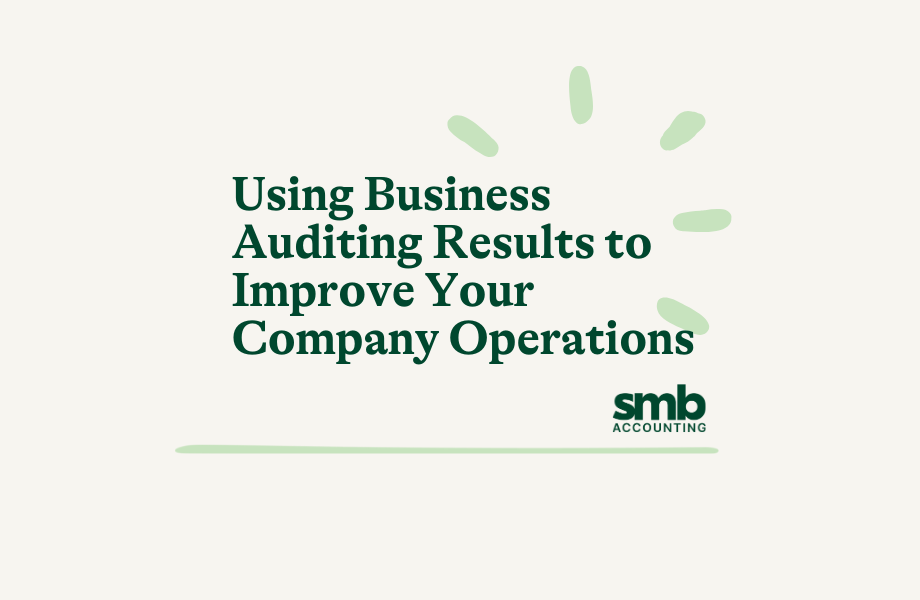Every business, whether big or small, needs a good roadmap to success, and business auditing serves as an invaluable guide. Think of it like a regular health check-up but for your business. Auditing takes the pulse of your company’s financial and operational health and identifies what’s working well and what needs a bit of attention. For businesses located in regions like Sunshine Coast, the insights gained through auditing can be extremely beneficial in navigating the local economic landscape.
Auditing does more than just spot issues; it can act as a springboard for growth. Businesses can be transformed when they understand their strengths and weaknesses. Efficient use of resources, better decision-making, and increased transparency are just some of the benefits. Let’s explore how the results from auditing can be used to improve business operations, leading to increased efficiency and success.
Understanding Business Auditing
Business auditing involves a thorough review of a company’s financial records and practices to ensure everything is in order and complies with established standards. It’s like having a detailed map that shows both smooth highways and hidden potholes in the business landscape. But what exactly happens during an audit, and what types are relevant to your business?
Here are some key types of audits that businesses might encounter:
- Financial Audits: This is the most common type. It assesses the accuracy of financial statements, ensuring that reported figures reflect the true state of the company’s finances.
- Operational Audits: These focus on the effectiveness and efficiency of operations. They examine processes and systems, identifying opportunities for improvement.
- Compliance Audits: Ensures that the company complies with relevant laws and regulations. This is particularly important in industries with strict regulatory requirements.
- Information System Audits: As technology plays an increasing role in business, these audits review the controls and data security of IT systems.
Understanding these different audits and their roles is crucial for any business looking to optimise its operations. Not only do audits help identify compliance issues, but they also open the door to uncovering inefficiencies that can be addressed immediately. This knowledge lays the groundwork for targeted improvements, fostering a resilient and agile business environment.
Identifying Financial Strengths and Weaknesses
The results from a business audit can shine a light on what’s making money and what’s draining it. By digging into these results, you can spot which parts of the business bring in the most profit and those that don’t. For example, imagine a local coffee shop on the Sunshine Coast that regularly audits its finances. The audit might reveal that while morning sales are booming, afternoon revenue is lacking. This crucial piece of information allows the shop to focus on boosting afternoon offerings or marketing, thereby increasing overall revenue.
The key benefits of understanding your financial strengths and weaknesses include:
- Profitability Analysis: Clearly see which products or services drive the most profit.
- Cost Management: Identify high-cost areas that could be optimised or reduced without sacrificing quality.
- Investment Opportunities: Discover areas that could benefit from further investment or additional resources.
By focusing on these factors, businesses can create more effective strategies that align with their financial realities, ultimately paving the way for more sustainable growth.
Implementing Improvements from Audit Feedback
Once the audit sheds light on the business’s inner workings, the next step is making changes based on what’s uncovered. But where do you start? Taking action can be structured and deliberate. Here’s a simple way to go about it:
- Prioritise Findings: Determine which audit results require immediate attention and which can be phased into longer-term plans.
- Set Clear Goals: Define what needs to change and establish realistic objectives for improvement.
- Develop Action Plans: Outline specific steps and assign responsibilities to ensure changes are implemented smoothly.
- Monitor Progress: Regularly check in on the changes to make sure they’re having the desired effect.
For example, if an audit reveals inefficiencies in the supply chain, steps might include renegotiating contracts with suppliers, switching to more cost-effective providers, or streamlining logistics. By using audit results to directly inform action plans, businesses are better equipped to enhance performance, cut unnecessary costs, and leverage opportunities for improvement.
Long-Term Benefits of Regular Audits
Conducting audits isn’t a one-time activity but a practice that should be embedded in the business routine. When audits are done regularly, they become catalysts for continuous improvement, encouraging lasting growth and stability. As businesses adapt to changing conditions, regular audits can help build a culture of accountability, ensuring everyone is focused on the company’s goals.
Ongoing audits help businesses:
- Maintain Transparency: Regular audits ensure that financial records are accurate and transparent, building trust with stakeholders.
- Drive Innovation: As audits reveal operational inefficiencies, they also open opportunities for innovation and improvement.
- Encourage Responsibility: Routine checks foster a sense of responsibility across all levels of the business, promoting a healthy company culture.
By embracing regular audits as a key business process, companies can strengthen their strategies and find new paths to success. This approach ensures they’re not just reacting to issues but proactively shaping their future. Keeping this cycle of review and refinement means businesses can stay ahead, ready to adapt and grow, no matter the challenges ahead.
To truly maximise the potential of your business, understanding the benefits of regular business auditing is key. Whether you’re aiming to identify financial strengths or streamline operations, these audits can transform your strategy. Connect with SMB Accounting today to explore how we can support your efforts and help you take confident steps toward long-term growth and stability.




